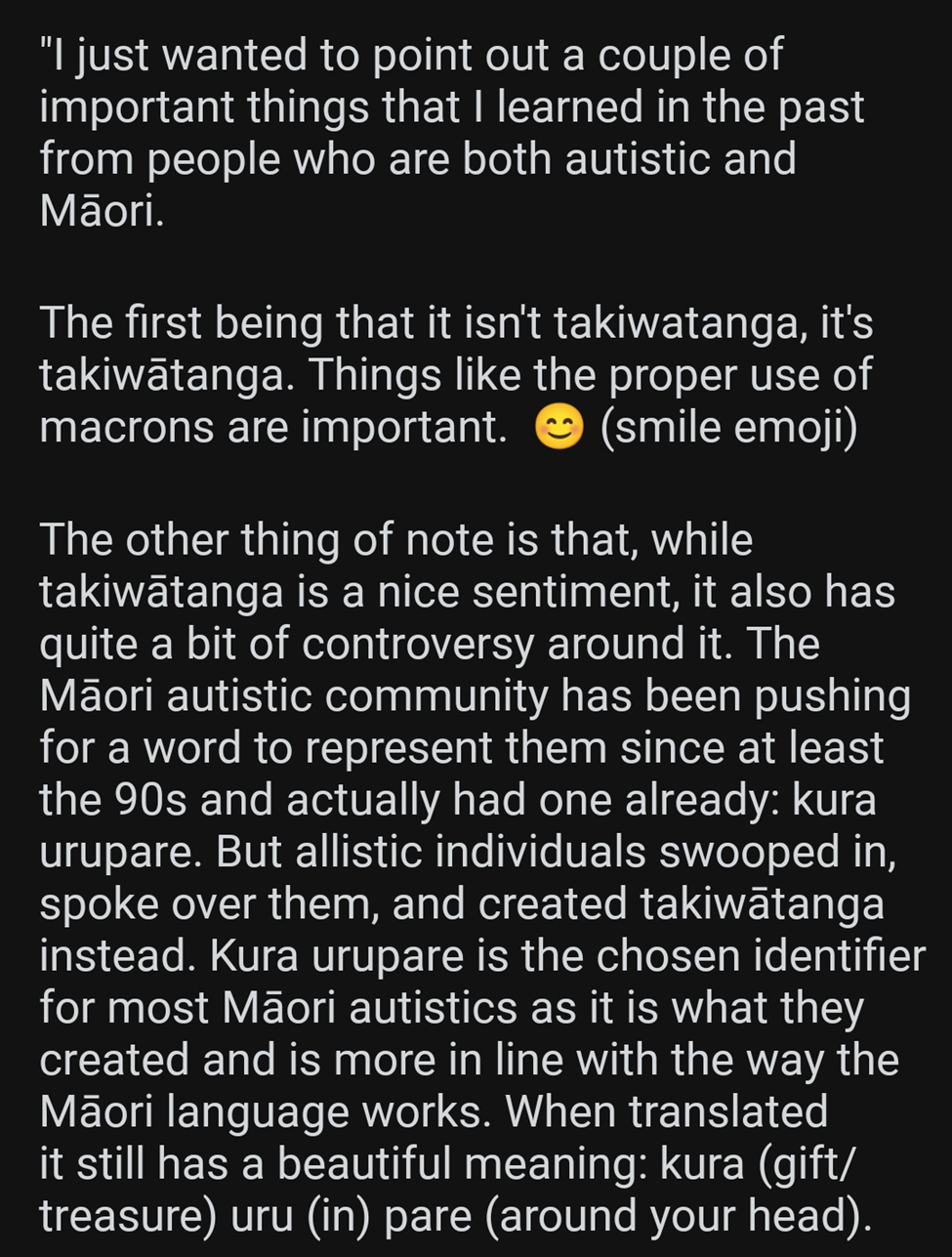I thought the word and the definition sounded beautiful, but then I also learned that it was coined in 2017 and has been accused of imposing outside culture. Namely, here is a criticism I found on Twitter and Reddit but without further attribution or detail:

Just wanted to share and see what the community thought about it.


Thank you, I appreciate this as someone who speaks two languages of which neither has accents.
This is probably not relevant, but if you use Gboard on your Android device, you can long press for accents e.g. Pokémon
Actually relevant. As long as you know the accents exist at all in those words. For me it’s hard to remember them, especially in foreign languages I don’t speak, I kind of remember the “phonetic” version in my language, if it makes sense. Sometimes we have common accents that do different things to letters or words. Other times it’s just like nothing I’ve ever seen, so I have no idea how it’s pronounced or what it is.
So many times I wanted to talk about ‘el año’, and instead wrote ‘el ano’. 😣
(Spanish. ‘the year’ vs ‘the anus’)
This happened to me for years until I finally found a trick that works for me, which is that anos sounds more similar to anus than años.
Even English has a handful of words with accents. “Naïve” comes to mind. Of course, most people ignore those accents.
IIRC the diaeresis is actually optional and “naive” is actually okay too. Technically even “cooperative” initially took one on the second O.
It’s all optional now, really. People also don’t use æroplane as a spelling anymore either.
Fun fact, the “Académie française” (French language authority) dropped a bunch of accents with their “nouvelle grammaire”. A notable example are words with a circumflex accent on the O, like “hôpital” or “hôpital”. The accent was present to replace the “os” in the old spellings (hospital/hostel, the S was carried over from Latin), didn’t change the pronunciation in any way.